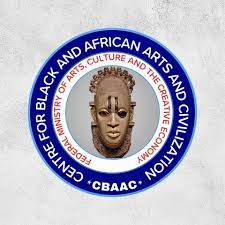CBAAC 2023 International Conference

THEME: Arts, Culture and the Development of African Creative Economy
CALL FOR ABSTRACTS
In the year 2000, the United Nations declared the Millennium Development Goals (MDGs) with the aim of reducing to the barest minimum, by 2015, global poverty and hunger, illiteracy, gender inequality, child and maternal mortality, epidemics and other global development challenges. Unfortunately, available evidence shows that most, if not all countries in Africa, will not achieve the MDGs by 2015. The Millennium Development Goals' (MDGs) vision which is enshrined in the Millennium Declaration (General Assembly resolution 55/2) and rooted in the Charter of the United Nations, identifies the need for all countries to pool efforts and resources in achieving development, peace and security, and human rights for the collective well-being of all people. In the Declaration a pertinent pledge was made by signatories to spare no effort to free all people from the abject and dehumanizing conditions of poverty. Predictably so, 2015 has passed and Africa remains in the woes of the quests and strivings to achieve the Global Development Agenda.
Although some progress appeared to have been achieved, nevertheless, more than half of global population live in extreme poverty. Africa remains at the center of abject poverty. Far too many people on the continent face serious deprivation in health and education, with progress hampered by significant inequality related to income, gender, ethnicity, disability, age and location. The prolonged global economic downturn and violent conflicts in recent years have exacerbated poverty, inequality and exclusion. Biodiversity loss, the degradation of land, shortage of water, deforestation and the intensifying risk of climate change threaten to reverse achievements and undermine future gains. These shortcomings make it incumbent on all to explore every option at taking the world particularly Africa out of excruciating poverty.
Central to the realization of the UN Development Agenda is the need to urgently and acutely reduce poverty. The creative economy and industries offer non- conventional ways out of poverty and tackling inequality. Creativity is the process by which ideas are generated, connected and transformed into things of value. It is the use of ideas to produce new concepts. It may be artistic, scientific or economic. The creative economy covers not only the making of cultural goods and services but also the creation of utilities within the domain of research and development. The creative economy has capabilities of bringing together a diverse collection of business disciplines that have both cultural and economic impact on living.
The World Summit Outcome Document of 2005 and the Outcome Document of the Millennium Development Goals Summit of 2010, adopted by the UN General Assembly acknowledged the diversity of the world and recognized that all cultures have capacity and capability of contributing to the enrichment of humankind. These documents strongly echo the mainstreaming of culture into policies and strategies, both as an enabler and as a driver of development. Africa and Africans have large array of unexplored creative talents and economic opportunities. The continent, particularly its teeming population with diverse cultures, is replete with numerous creative workers, including musicians, artisans, performers, craftspeople, professional designers and technicians. Despite their presence, unemployment-exacerbating poverty remains sad and unfortunate references to the continent's potentials. Consequently, the need to change the narrative made the Centre for Black and African Arts to devote the 2023 International Conference to address the issues of "Arts, Culture and the Development of African Creative Economy".
SUB-THEMES
* The Humanities and Creative Economy
* Faith, Spirituality and Creative Economy
* Health and Creative Economy
* Sciences and Creative Economy
* Technology and the Creative Economy
* Law and Creative Economy
* Education and Creative Economy
* The Politics of Creative Economy
* The Economics of Creative Economy
* Entrepreneurship and the Creative Economy
* Youth Empowerment and the Creative Economy
* Gender and the Creative Economy
* Documentation, Archives and Libraries and the Creative Economy
* Audiovisual (film, radio, television, video games and multimedia) and the Creative Economy
* Informal Cultural Systems and the Creative Economy
* The Art and Antiques and the Creative Economy
* Artistic Crafts and the Creative Economy
* Fashion Design and the Creative Economy
* Cultural Heritage and the Creative Economy
* Performing Arts and the Creative Economy
* Visual Arts and the Creative Economy
* Communication Arts and the Creative Economy
* Advertising and Public Relations and the Creative Economy
* Architecture and the Creative Economy
* Artificial intelligence and Creative Economy
* Social Media, Interactive Leisure (e.g. video and computer games) and the Creative Economy
* Web, Digital and Graphic Design and Marketing and the Creative Economy
* Publishing and the Creative Economy
* Software Development and the Creative Economy
Abstract Submission Deadline is 12th November, 2023.
Key Words should be indicated in the abstracts.
Send Abstract to: jubadosu@yahoo.com, ogunlewetayo@gmail.com, diyalon2004@yahoo.com, and obinalihenry@yahoo.com
Notification for Selected Abstracts is 14th November, 2023.
Submission of Full of Paper is 28th November, 2023
Conference (Hybrid): 5-6 December, 2023
Quick Links
Contact Us
Government Reserved Area
Abere, Osun State
| |


